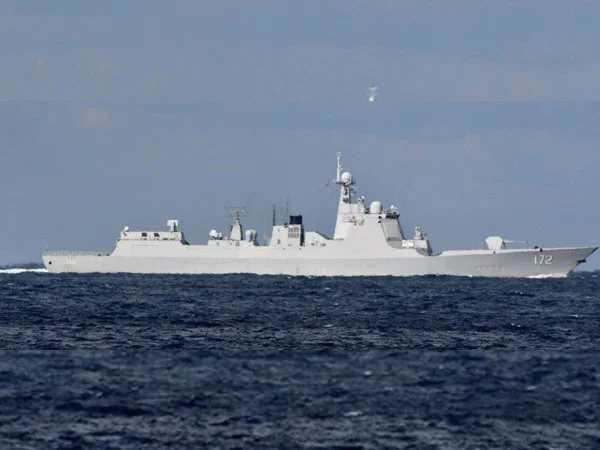Germany summoned China’s ambassador to Berlin on July 8, 2025, after a Chinese warship allegedly targeted a German reconnaissance aircraft with a laser during the EU’s Operation ASPIDES in the Red Sea.
The German Foreign Ministry condemned the act as “completely unacceptable,” citing risks to personnel and disruption of the maritime security mission aimed at protecting vessels from Houthi attacks.
Details of the Incident
The incident occurred in early July near Yemen’s coast, involving a German Multi-Sensor Platform (MSP), known as a “flying eye,” operated by civilian pilots with up to four German military personnel on board.
The aircraft, stationed in Djibouti, was conducting routine surveillance for Operation ASPIDES when a Chinese warship, previously encountered in the area, used a laser without warning or communication, according to the German Defense Ministry.
The mission was aborted as a precaution, but the aircraft landed safely in Djibouti, and operations have since resumed.
Operation ASPIDES and Regional Context
Launched in February 2024, Operation ASPIDES (Greek for “shields”) is an EU Naval Force mission to safeguard commercial shipping in the Red Sea, Gulf, and Indian Ocean from Houthi militant attacks, which have targeted vessels in solidarity with Palestinians in Gaza.
Germany contributes up to 700 personnel, alongside nations like Greece, France, and Italy.
The laser incident, reported near Yemen, marks a rare confrontation between a European NATO member and China, amid growing EU concerns over China’s military presence and influence on critical infrastructure.
German Response and Criticism
The German Foreign Ministry’s X post stated, “The endangerment of German personnel and disruption of the operation are completely unacceptable,” prompting the summoning of Ambassador Deng Hongbo.
A Defense Ministry spokesperson noted the laser posed risks to “people and property,” highlighting the lack of prior communication via emergency channels.
Bundestag member Roderich Kiesewetter, a retired colonel, labeled it a “laser attack”, urging a tougher China policy to counter “hybrid attacks.”
He criticized the summoning as insufficient, reflecting broader German frustration with China’s actions.
Broader Implications
The incident escalates tensions as Europe grapples with China’s growing military footprint, including its naval presence in the Red Sea, where China maintains a base in Djibouti.
Unlike prior laser incidents involving U.S. aircraft, such as a 2020 case near Guam, this event directly involves a European NATO member, raising questions about China’s intentions.
China’s embassy in Berlin and foreign ministry have not publicly responded, though some X posts suggest China downplayed the incident as a standard defense measure.
The EU’s ASPIDES mission, focused solely on defensive operations, faces increased scrutiny as Houthi attacks, including a deadly strike on July 8, persist.
Looking Ahead
Germany’s protest underscores rising EU-China tensions, with potential implications for diplomatic and trade relations.
Kiesewetter’s call for policy change echoes concerns about China’s influence on EU infrastructure, such as 5G networks and ports.
As ASPIDES continues, with Germany’s mandate extended to October 2025, further incidents could strain NATO-China dynamics.
The EU and Germany are likely to press for accountability while balancing economic ties with China, a key trading partner.




















